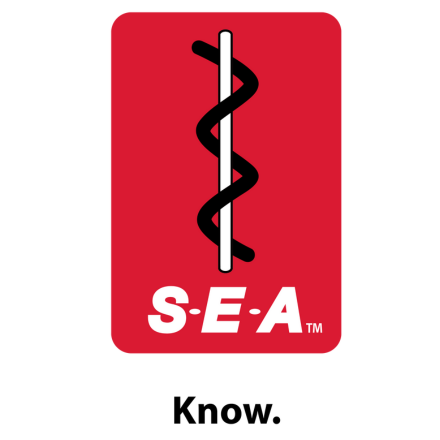Interpreting the Fine Print – When Contractual Language Does Not TranslateFebruary 2023 • Source: Stephanie E. Bendeck, Melick & Porter, LLPInsurers and business owners alike need to be aware of the changing legal landscape surrounding their general liability policies and contracts. On January 20, 2023, in Gorelick v. Star Markets Co., Inc., 102 Mass.App.Ct. 219 (2023), the Middlesex Appeals Court of Massachusetts decided how far the duty to defend provision in a purchase order between two businesses could extend. A supermarket, Shaw’s Supermarkets, Inc. (“Shaw’s”) had purchased an automatic door from Stanley Access Technologies, LLC (“Stanley”). A personal injury claim was filed by May Gorelick (“Gorelick”), alleging that the automatic door installed by Stanley at a Shaw’s store struck her and caused her to sustain severe injuries. Gorelick accused Shaw’s of improperly maintaining the doors, and she accused Stanley of improperly installing the doors. The relevant documents to the transaction between Stanley and Shaw’s included a purchase order (“PO”). Stanley also included a separate warranty document. The PO between Shaw’s and Stanley contained the following language: Supplier hereby indemnifies, defends and holds harmless SUPERVALU [and] its affiliates ... from and against any and all claims, actions, fines, penalties, liabilities, damages, injuries, costs and expenses (including, without limitation, costs and expenses for investigation and litigation and reasonable attorneys’ fees) which arise out of or in connection with Supplier or any of its employees’, agents’, subcontractors’, or independent contractors’ breach of any covenants, warranties or representations made herein. Stanley defended itself in the lawsuit, but it refused to defend Shaw’s. At trial, Stanley and Shaw’s presented separate defenses. The jury found that Shaw’s was negligent, but its negligence was not a substantial contributing cause to the injuries. The jury found that Stanley was not negligent. Shaw’s then brought claims against Stanley, arguing that the PO required Stanley to defend it against claims that related to problems with the doors. The legal fees for Shaw’s defense totaled $237,438.37. The “in for one, in for all” rule, also known as the “complete defense rule” requires general liability insurers to defend an insured on one of the counts alleged against it, even if the other counts are not covered. GMAC Mtge., LLC v. First Am. Title Ins. Co., 464 Mass. 733, 738, 985 N.E.2d 823 (2013); Mount Vernon Fire Ins. Co. v. Visionaid, Inc., 477 Mass. 343, 351, 76 N.E.3d 204 (2017). Massachusetts appellate courts have not applied this rule outside the general liability insurance context. In this particular case, the appellate court decided that it would be inappropriate to extend the rule under these circumstances. First, Stanley is not an insurer, and the PO is not an insurance policy. Although courts have sometimes applied insurance principles to commercial contracts, the same standards do not govern “indemnity and duty to defend provisions in the commercial and insurance contexts.” Siebe, Inc. v. Louis M. Gerson Co., 74 Mass. App. Ct. 544, 556, 908 N.E.2d 819 (2009). See Johnson v. Modern Cont. Constr. Co., 49 Mass. App. Ct. 545, 548, 731 N.E.2d 96 (2000) (“We do not consider coverage questions under an insurance contract analogous to coverage under an indemnity provision of a construction contract”). The transaction itself between Shaw’s and Stanley was simple – it involved the purchase and installation of automatic doors. Stanley’s duty to defend was limited to claims that “arise out of or in connection with” Stanley’s breach of one of its warranties. Thus, the scope of Stanley’s contractual duty to defend was limited and was directed towards risks that were already existing on the date that Stanley installed the doors at Shaw’s. There was no other evidence, in the circumstances surrounding the transaction or in the purchase order itself, that demonstrated that Stanley intended to defend against claims that were unrelated to the breach of one of its own warranties. Thus, the rationale of the “in for one, in for all” rule was not implicated because it would not be impractical to divide the representation between the covered and noncovered claims. Finally, Shaw’s did not allege that the case was defended in a coordinated way; the record confirmed that Shaw’s and Stanley presented separate defenses at trial. The claim that Shaw’s was negligent in maintaining or inspecting the automatic door was not one that arose out of or was connected to a breach by Stanley of its warranties that the door was free from defects and installed in “a good workmanlike manner.” The appeals court further opined that “[a] contrary reading would “threaten[ ] to sweep a whole host of uncontemplated risks into the ambit” of the provision. Deutsche Bank Nat’l Ass’n, 465 Mass. at 747, 991 N.E.2d 638. The fine print can have large consequences. When preparing transactional documents of any kind, be wary of the language included, particularly when that language is being included to protect or indemnify another party. The team at Melick & Porter, LLP is prepared to guide your business with its contract-drafting and interpretation needs. |













